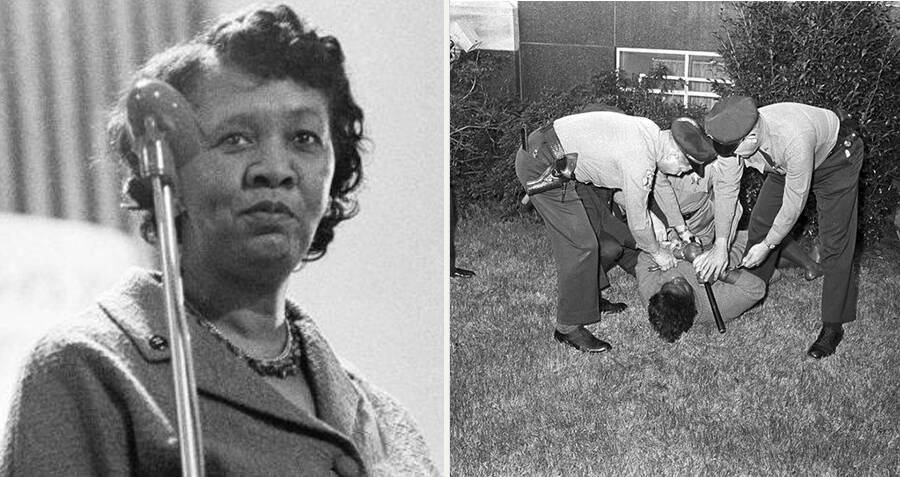Annie Lee Cooper was born in 1910 in Selma, Alabama, at a time when the city’s wealth was built on cotton, but Black residents lived in poverty, working as sharecroppers under conditions close to slavery. After Alabama passed a new constitution in 1901, Black people were effectively blocked from voting through poll taxes and literacy tests. Growing up, Cooper never imagined that Black people could vote—until she moved to Kentucky at age 14 to live with her sick sister. There, she saw Black people casting their ballots, sparking her desire to vote, though she was still too young.
In 1962, Cooper returned to Selma to care for her mother and got a job at Dunn Rest Home. Around the same time, the Student Nonviolent Coordinating Committee (SNCC) arrived in Selma to organize for voting rights. Having registered to vote in Kentucky and Ohio, Cooper was determined to do the same in her hometown. But each time she tried, she was told she failed the voter registration test. She even spent a whole day waiting in line to register, but was never given the chance.
In October 1963, the SNCC organized Freedom Day, urging Black Selmians to attempt to register. Cooper was one of 400 people who stood in line for hours at the Dallas County courthouse. As the protest continued, Cooper and another employee, Elnora Collins, were fired from their jobs at Dunn Rest Home by the owner, who also tried to intimidate Collins by taking her photo and then striking her with a cattle prod when she refused. In response, 40 other Black employees walked off the job in solidarity. The women were blacklisted in Selma and struggled to find work, eventually landing jobs at the Black-owned Torch Motel.
In early 1965, Dr. Martin Luther King Jr. and the Southern Christian Leadership Conference (SCLC) arrived in Selma to lead a national campaign for voting rights. On January 25, Cooper was standing in line at the courthouse again, trying to register, when Sheriff Jim Clark and his deputies arrived to break up the demonstration. Clark poked Cooper in the neck with his baton, and she famously turned around and punched him in the face, knocking him to the ground. She was arrested, though released after being threatened by Clark.
Her actions, along with those of other activists, helped pave the way for the Voting Rights Act of 1965, a landmark achievement in the Civil Rights Movement. Cooper’s bravery was later portrayed by Oprah Winfrey in the movie Selma.




